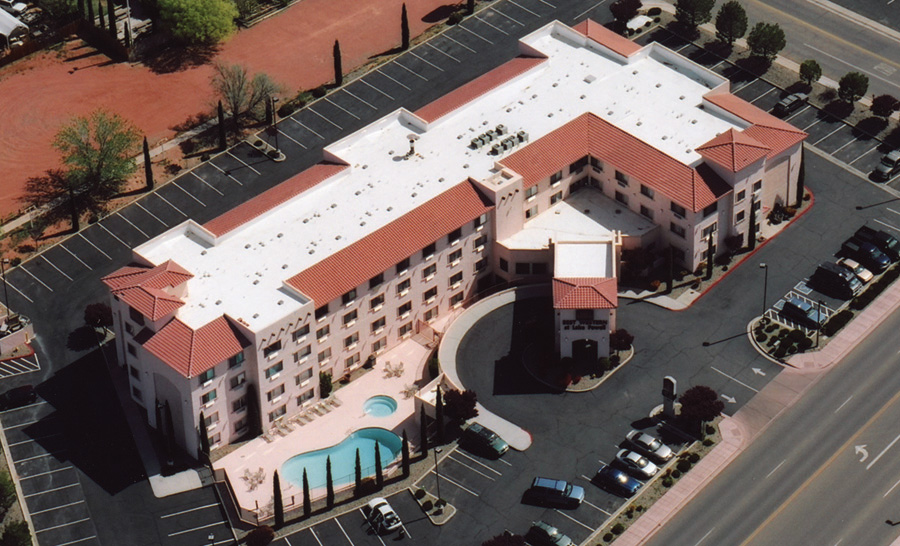
The roof of your facility plays a major role in protecting your business. A lasting, durable roof is a significant but worthwhile investment. This makes the commercial roof warranty so much more than a bunch of fine print. It’s best to think about warranties as financial assets, with the most valuable warranties being those that cover the most types of damage and last the longest.
Types of Commercial Roof Warranties
Warranty terms and responsibilities can differ greatly depending on the manufacturer and roofing contractors you are considering. This makes it especially important you know and understand what you’re signing on to before you choose a roof type or contractor.
Much like any other contract, warranties are legal relationships that place obligations and responsibilities upon each party:
- Roofing materials manufacturers
- Roofing contractors
- Commercial property owners
In broad terms, there are two main types of warranties, and property owners generally need both types in order to be fully covered. These categories are detailed below.
Manufacturer Commercial Roof Warranties
Types of manufacturer warranties you may encounter include:
- No Dollar Limit (NDL) Warranties. Under this kind of warranty, the manufacturer agrees to fully cover failure of its products during the warranty period as long as the products have been properly used and maintained. This is often considered a top-of-the-line warranty and generally comes with an additional fee.
- Materials Warranty. Through this warranty, the manufacturer guarantees that its products won’t fail during a specified period of time. These generally cover 10, 20, or 30 years and may be provided at no additional cost.
- Roof System Warranty. Sometimes called the “membrane only” warranty, this is one of the most basic warranties offered by manufacturers and only covers the actual membrane of the commercial roof system. Unlike more comprehensive options, it does not include coverage for insulation or decking, although it can come in both limited and no dollar limit forms.
Contractor Warranties
In addition to a manufacturer warranty, commercial property owners should also protect their investment with a roofing contractor warranty. This type of warranty covers the workmanship rather than the roofing system itself. After all, even if you opt for the highest quality roofing materials, they will fail if they are not installed properly.
These labor warranties tend to last at most five years, and some can be as short as a single year. Sometimes, roofing contractors are willing to negotiate the length of the warranty. Remember that the longer the warranty lasts, the more valuable it will be as a financial asset and the longer you can maintain peace of mind about your investment being protected.
Differentiating Commercial Roof Warranties from Insurance
One common misconception among property owners is that a great commercial roof warranty can serve as a replacement for insurance. This is far from the truth. While roof warranties do cover products that are defective or that age prematurely, they do not by any means cover all forms of damage.
For example, warranties do not cover:
- Damage resulting from failure to properly maintain the roof
- Abuse related to rerouting HVAC systems
- Consequential water damage on the interior of your property
- Damage due to fallen trees, storms, natural disasters, and fires
The best way to ensure you have a thorough understanding of your roof warranty options is to sit down with your roof contractor for a comprehensive review of what is and is not covered by the warranties available. Doing this well before any decisions are made or projects are initiated could save you headaches and unforeseen expenditures down the road.
Learn more about the importance of protecting your investment with the right commercial roof warranties today! Contact AMW Contracting at 904-725-4197 for details about our commercial roofing services and warranty options. You can also request a free estimate.
